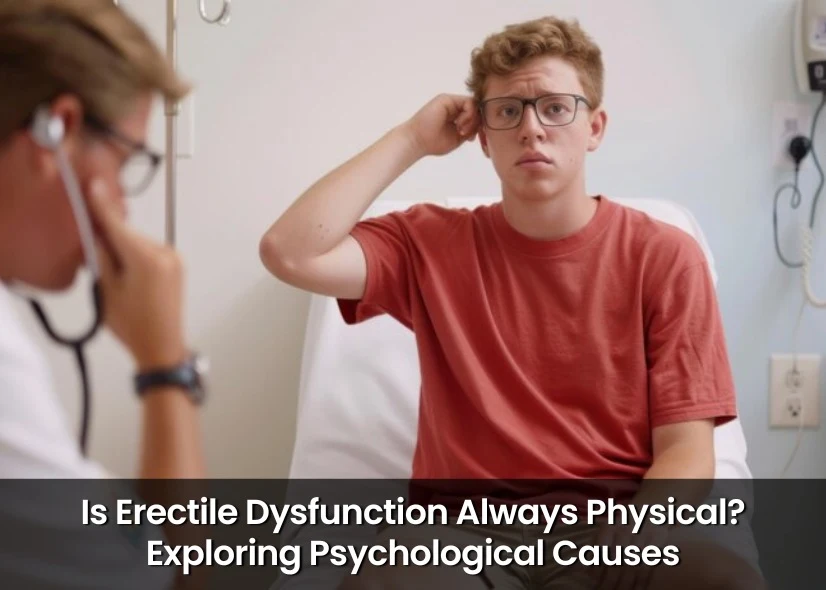The Mind-Body Connection
Erectile function is a result of intricate coordination between the brain, hormones, nerves, and blood vessels. When psychological stress or mental health issues arise, they can disrupt this coordination, leading to difficulties in achieving or maintaining an erection.
Common Psychological Causes Of ED
Stress
Everyday stress, whether related to work, finances, or relationships, can interfere with sexual performance. Chronic stress affects hormone levels, including cortisol, which may disrupt the hormonal balance required for erections.
Performance Anxiety
The fear of underperforming can create a cycle of anxiety and ED. When a man worries about satisfying his partner, it can increase stress levels and hinder erectile function.
Depression
Depression reduces libido and impacts overall energy levels, making sexual activity less appealing or physically challenging. Additionally, some antidepressant medications may also contribute to ED.
Relationship Issues
Tension, unresolved conflicts, or lack of communication in a relationship can lead to emotional distance, which often manifests as physical symptoms, including ED.
Past Trauma
Negative past experiences, such as sexual abuse or trauma, can create psychological barriers to healthy sexual function. Therapy and counseling can be critical in overcoming many of these challenges.
Breaking the Stigma
Many men hesitate to share about ED because of the embarrassment or the assumption that it is an unpreventable part of aging. This stigma often prevents individuals from seeking help for psychological causes, even when solutions are available.
How To Address Psychological Causes Of ED
Therapy and Counseling
Working with a psychologist or counselor can help uncover and resolve underlying emotional or mental health issues. Cognitive-behavioral therapy (CBT), in particular, is effective in treating performance anxiety and depression.
Open Communication
Discussing feelings and concerns with a partner can reduce relationship strain and alleviate anxiety.
Stress Management
Activities like meditation, yoga, or exercise can help reduce stress levels, promoting better mental and physical health.
Lifestyle Changes
A healthy lifestyle, including a balanced diet, regular exercise, and adequate sleep, supports overall well-being and can help improve sexual health.
Professional Guidance
Seeking help from a healthcare provider can provide insights into whether ED has a psychological or physical root, guiding the most appropriate treatment plan.
When To Seek Help
If ED persists, it’s essential to consult a healthcare professional. They can rule out underlying physical conditions and recommend psychological or medical interventions tailored to individual needs.
Lal Clinic Is Here To Help
At Lal Clinic , we understand the sensitive nature of erectile dysfunction and provide compassionate, discreet care. Whether the cause is physical, psychological, or a combination of both, our experienced team is dedicated to helping you regain confidence and vitality. Don’t let ED define your life—reach out to Lal Clinic today for personalized solutions.
Feel free to adjust this content further to match the tone and focus of your target audience!

